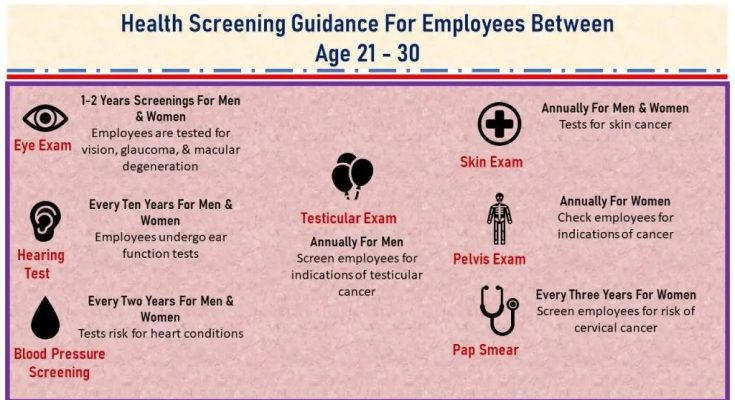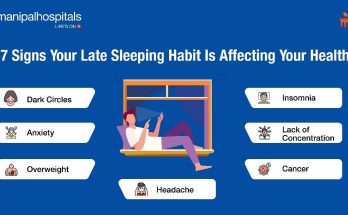Health screenings serve as vital checkpoints in our lives, offering a proactive means to detect potential health issues before they develop into serious problems. While regular check-ups with healthcare providers are essential at any age, certain screenings become increasingly important as we move through different stages of life. Understanding which tests and evaluations are recommended—and why—helps individuals take charge of their health with confidence, potentially preventing complications and promoting long-term well-being.
In early adulthood, the focus of health screenings often centers around establishing baseline health and monitoring risk factors that could impact future outcomes. Although young adults may feel invincible, this period is crucial for identifying lifestyle factors such as cholesterol levels, blood pressure, and body mass index, which can hint at risks for heart disease or diabetes later in life. Additionally, screenings for sexually transmitted infections (STIs) are important during this time, given the higher likelihood of exposure. For women, routine Pap smears to screen for cervical cancer typically begin in the early 20s, underscoring the importance of preventive care even in seemingly healthy years.
As individuals transition into their 30s and 40s, health screenings begin to shift toward monitoring conditions that may develop gradually with age. It’s during these decades that many adults start experiencing subtle changes in metabolism and cardiovascular health. Regular blood pressure checks, lipid panels, and glucose testing can reveal early signs of hypertension, high cholesterol, or prediabetes. These results often serve as wake-up calls, prompting lifestyle adjustments such as improved diet, increased physical activity, or stress management. For women in this age group, mammograms may be introduced, particularly if there is a family history of breast cancer or other risk factors. This stage in life is also an opportune time to assess mental health, as anxiety and depression often surface amid career pressures and family responsibilities.
Once past the mid-40s, the scope of health screenings broadens further to address the increased likelihood of chronic diseases and age-related conditions. Colonoscopies become a cornerstone of preventive care, recommended for most adults starting around age 45 to detect colorectal cancer at an early, treatable stage. Eye exams gain importance as well, given the risk of glaucoma and other vision disorders that can creep up without obvious symptoms. Men may be advised to discuss prostate health with their doctors, balancing the benefits and risks of prostate-specific antigen (PSA) testing based on personal and family history. For women, continuing regular mammograms remains essential, while bone density scans may be introduced to check for osteoporosis, especially in those with risk factors like menopause or family history.
In the decades following 60, health screenings tend to become more frequent and comprehensive, reflecting the growing complexity of aging bodies. Cardiovascular health remains a priority, with more frequent monitoring for heart disease and stroke risk factors. Vaccinations, such as those for shingles and pneumonia, are often recommended to reduce the impact of infections that can severely affect older adults. Cognitive assessments may also come into play, helping to identify early signs of dementia or Alzheimer’s disease so that timely interventions can be explored. It’s also common to screen for sensory impairments, as hearing loss and vision changes can significantly affect quality of life if left unaddressed. Importantly, these screenings are not just about disease detection; they provide a framework for maintaining independence and vitality well into later years.
What ties these age-specific recommendations together is the principle of personalized care. While general guidelines offer a roadmap, individual circumstances—such as family medical history, lifestyle habits, and existing conditions—should always guide the frequency and type of screenings pursued. For example, someone with a strong history of cardiovascular disease in their family may start cholesterol testing earlier or undergo more frequent assessments. Similarly, individuals with a history of certain cancers may require more vigilant surveillance and additional imaging. This tailored approach helps optimize the benefits of screening while minimizing unnecessary procedures or anxiety.
Understanding the rationale behind health screenings also highlights their role beyond just detecting illness. These tests serve as educational touchpoints, allowing patients and healthcare providers to engage in meaningful conversations about preventive strategies, risk factor modification, and health goals. For instance, a routine blood pressure measurement that reveals borderline hypertension can spark a discussion about dietary salt intake, exercise routines, and stress reduction techniques. Similarly, an abnormal glucose test may lead to a deeper dive into nutritional counseling or weight management programs. This dynamic underscores how screenings are part of a larger health partnership rather than isolated checkboxes.
For busy professionals or those juggling family and work commitments, keeping up with recommended screenings can sometimes feel overwhelming. However, integrating these health evaluations into regular routines pays dividends by catching problems early and preventing costly complications down the line. Many workplaces now offer wellness programs that facilitate screenings, while digital health tools and reminders can support adherence. Ultimately, viewing screenings as investments in one’s health and productivity helps reframe them from burdensome tasks into empowering steps toward a longer, healthier life.
In conclusion, important health screenings by age reflect the evolving nature of human health, from youthful vitality to the complexities of aging. By embracing these milestones with awareness and intention, individuals can harness the power of early detection and prevention. This approach not only mitigates risk but also fosters a deeper connection to one’s body and well-being. Health screenings are more than medical tests—they are proactive dialogues that pave the way for informed choices, resilience, and a better quality of life at every stage.




